Legacy Reborn: Time Capsule Unveiled as AC Church Stone Finds New Life at Smithsonian
A historic Atlantic City church is being reborn—its stone headed to the Smithsonian Castle, and a time capsule uncovered during demolition reveals relics from 1910. Discover how a sacred space, long a pillar of community, begins a new chapter in legacy and purpose.
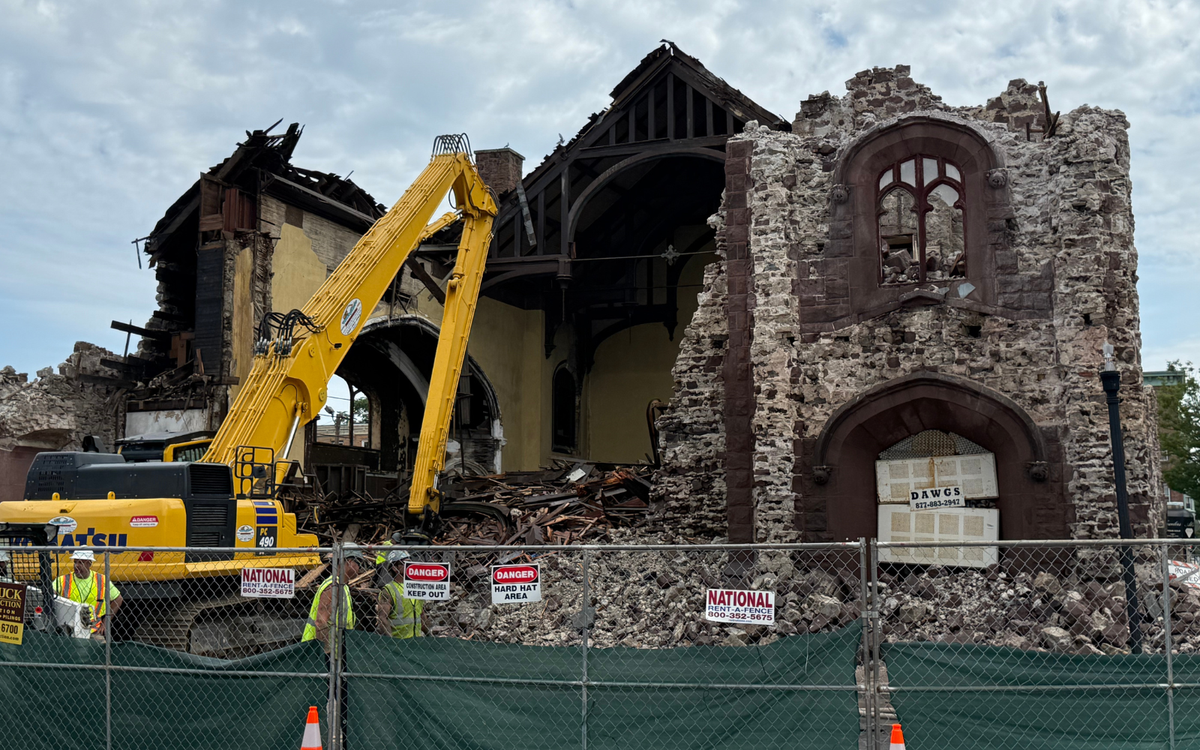
ATLANTIC CITY — The historic First Presbyterian Church, which has stood at the corner of Pennsylvania and Pacific avenues since 1856, is set to be razed to make way for a new cannabis dispensary.
It played various roles, serving the Atlantic City community with honor and distinction. Unfortunately, like all things, its time has come to an end. However, First Presbyterian, unlike most old buildings, will be “reincarnated” so to speak.
Sign Up for Atlantic City Focus Weekend Guide
Your Key to Winning the Weekend in AC and Beyond!
No spam. Unsubscribe anytime.
Roughly 700,000 pounds of stone from the historic church will be reborn as part of the Smithsonian Institution Building — commonly known as the Smithsonian Castle — in Washington, DC.
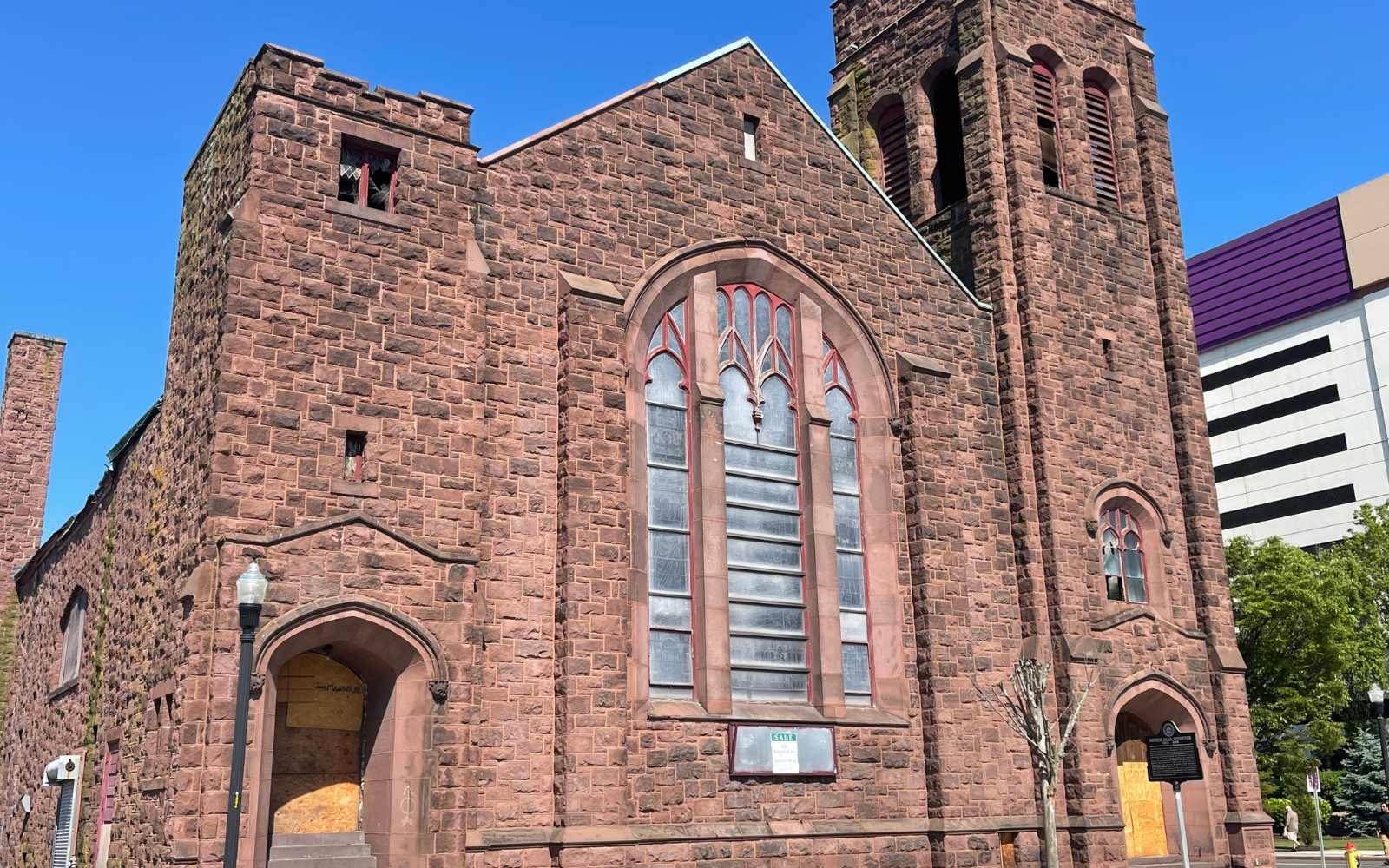

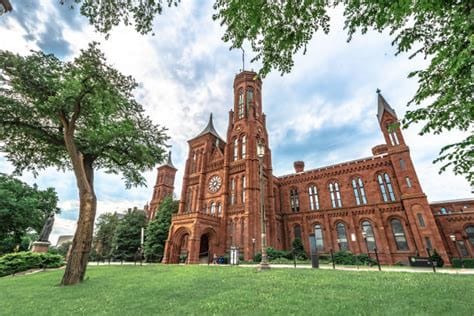
Red Sandstones from First Presbyterian and the Smithsonian Institution, known as "The Castle" originated from the same quarry. Smithsonian building photo credit: Smithsonian Institution. First Presbyterian photo credit: Mark Tyler
The Victory First Presbyterian Deliverance Church congregation, which occupied the building from 1989 to 2018, has since relocated to another historic site: the former Allen Chapel African Methodist Episcopal Church on Leeds Avenue.
 Atlantic City FocusMark Tyler
Atlantic City FocusMark Tyler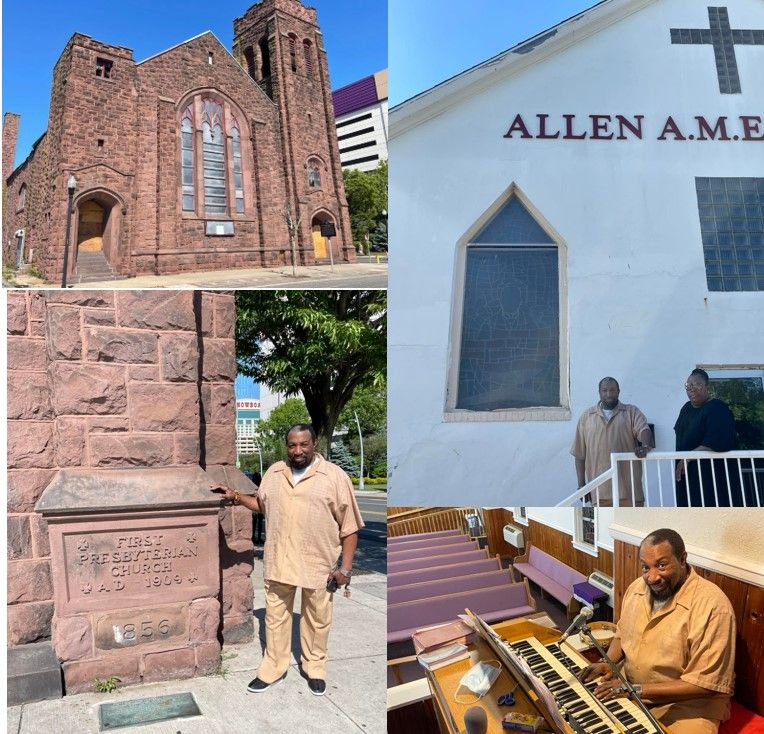
And Sister Jean Webster’s Kitchen — a nationally known feeding ministry once housed in the church — has been revived as a food pantry just down the street at the former Saint Monica’s Church on Pennsylvania Avenue.
On Monday, July 7, 2025, the site’s new owners, Faye Coleman and Priscilla Wynn of Pure Genesis — an African American-owned cannabis company committed to community partnership — unveiled a time capsule discovered during the church’s careful demolition.
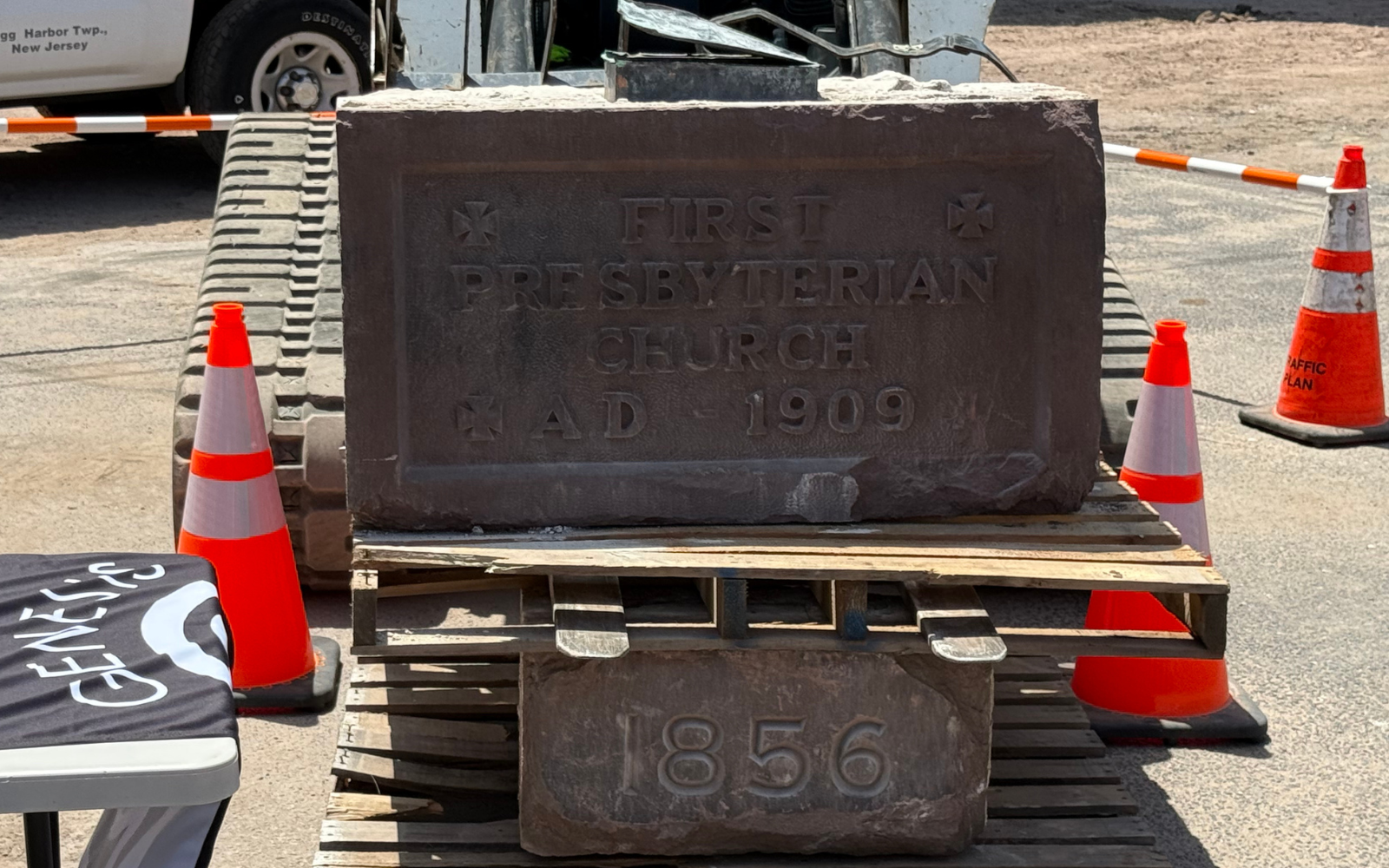
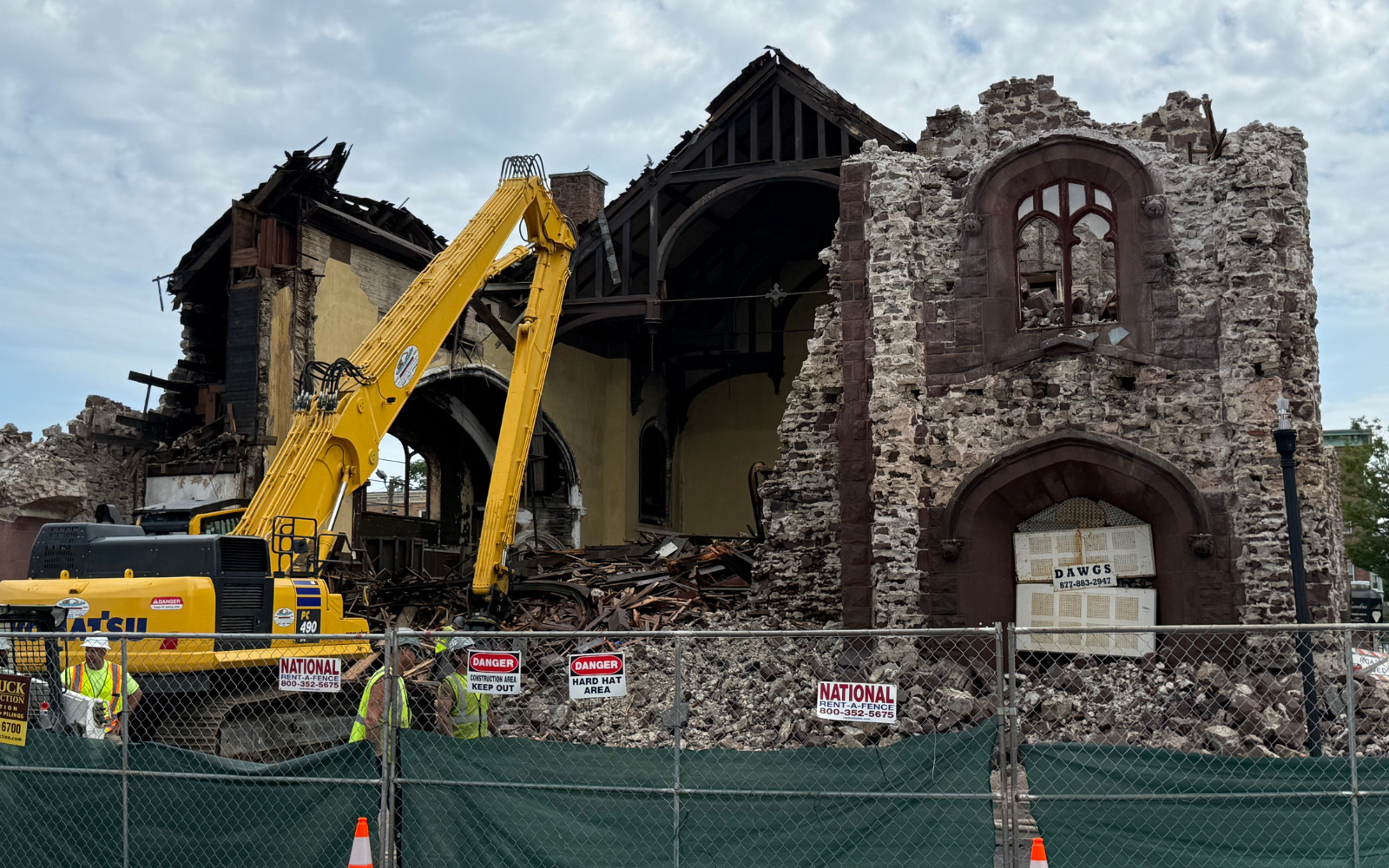
“This is more than just an unveiling — it’s a moment for reflection, connection, and honoring those who came before us,” said Coleman, co-founder of Pure Genesis. “We’re excited to share this experience with the community and shine a light on the stories preserved here for generations.”
A Glimpse Into the Past
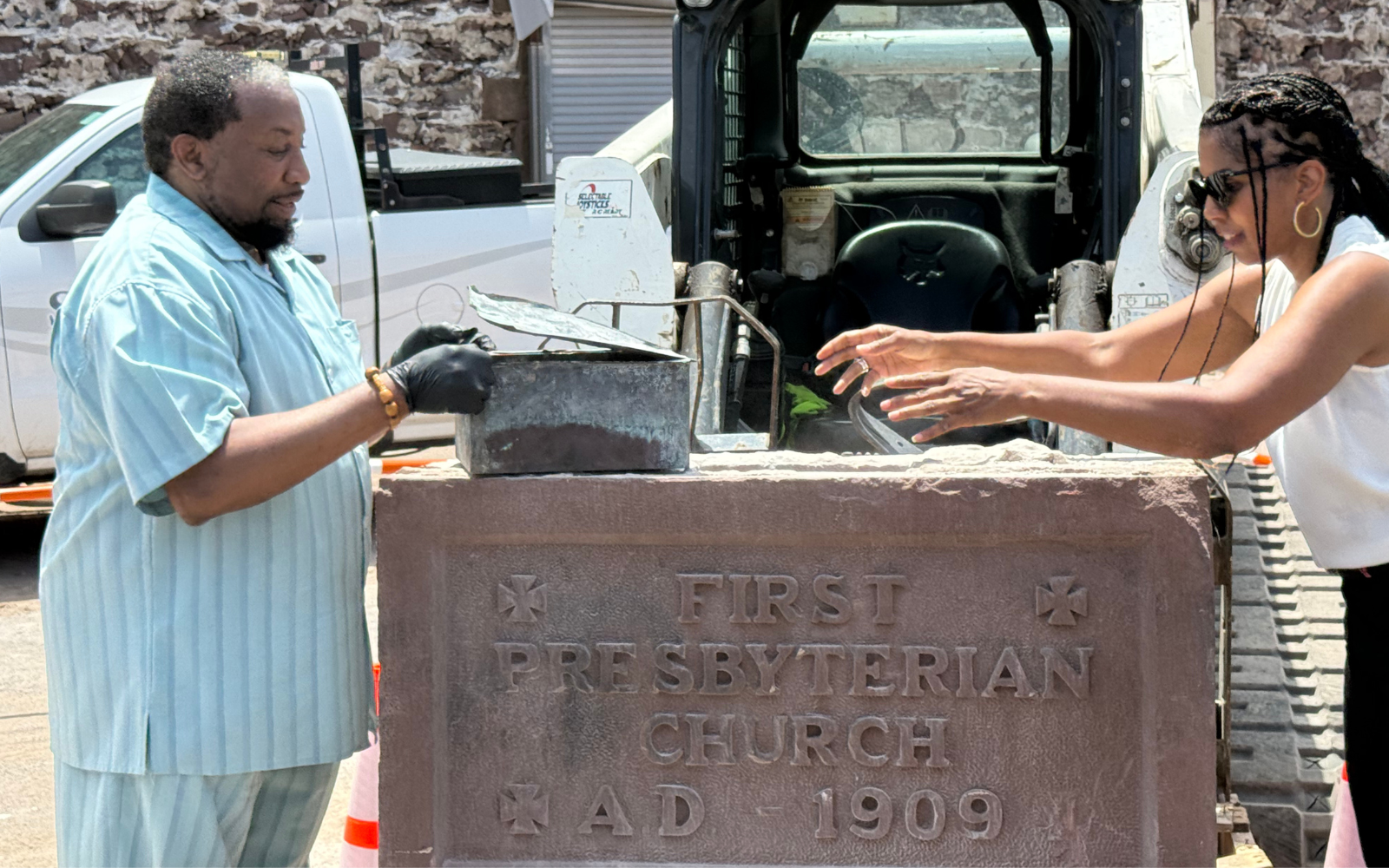
Coleman and Bishop Charles Lyles, who founded Victory First Presbyterian Deliverance Church, opened the time capsule together. It contained a China plate featuring a detailed drawing of the church on one side and the church history on the other. It also included a Bible, what appeared to be a church hymnal, and newspaper clippings from 1910 editions of the Evening Union and the City Daily Press. Also enclosed were corporate seals — identifying the congregation simply as “The Presbyterian Church, Atlantic City,” and another dated 1855.
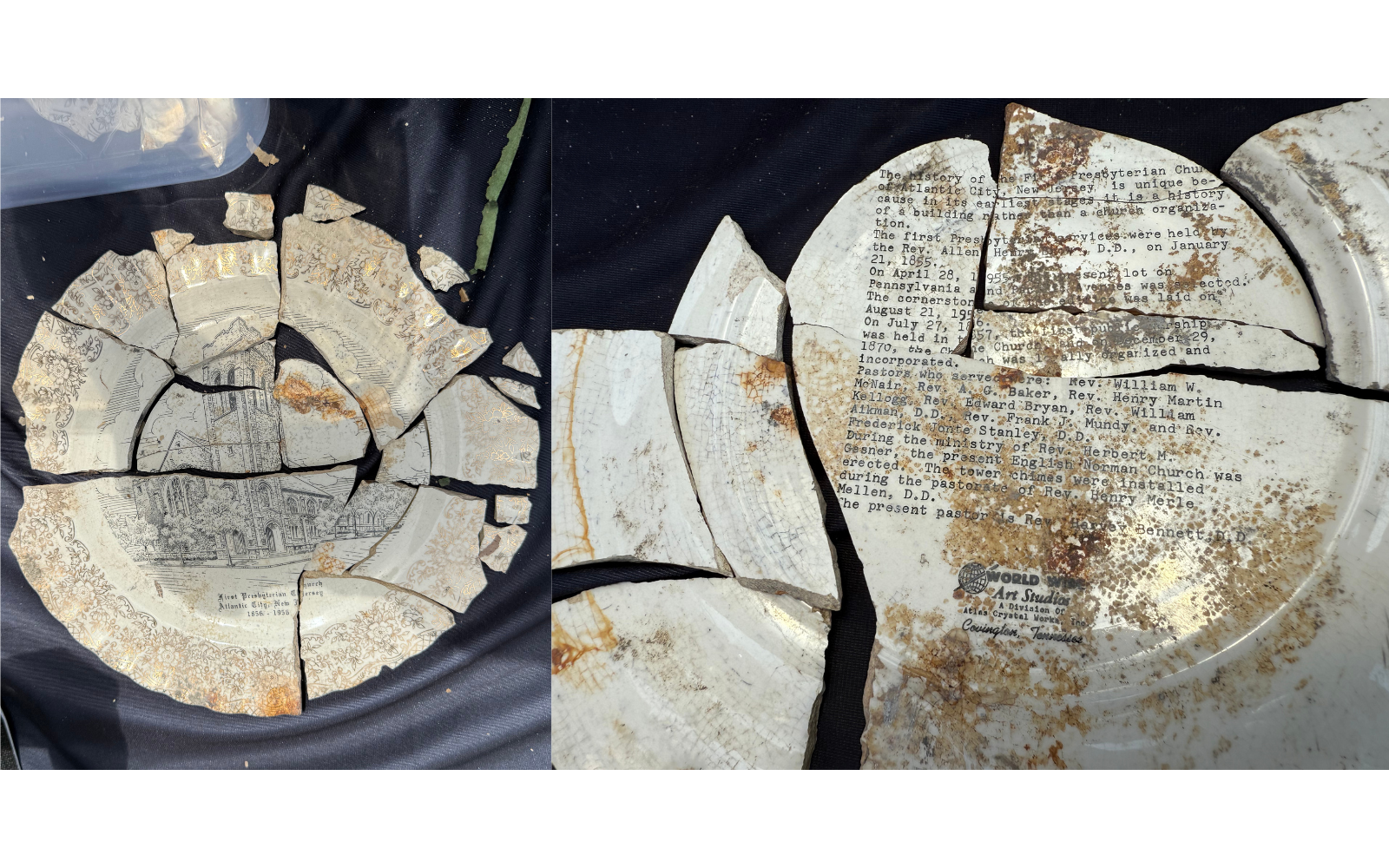
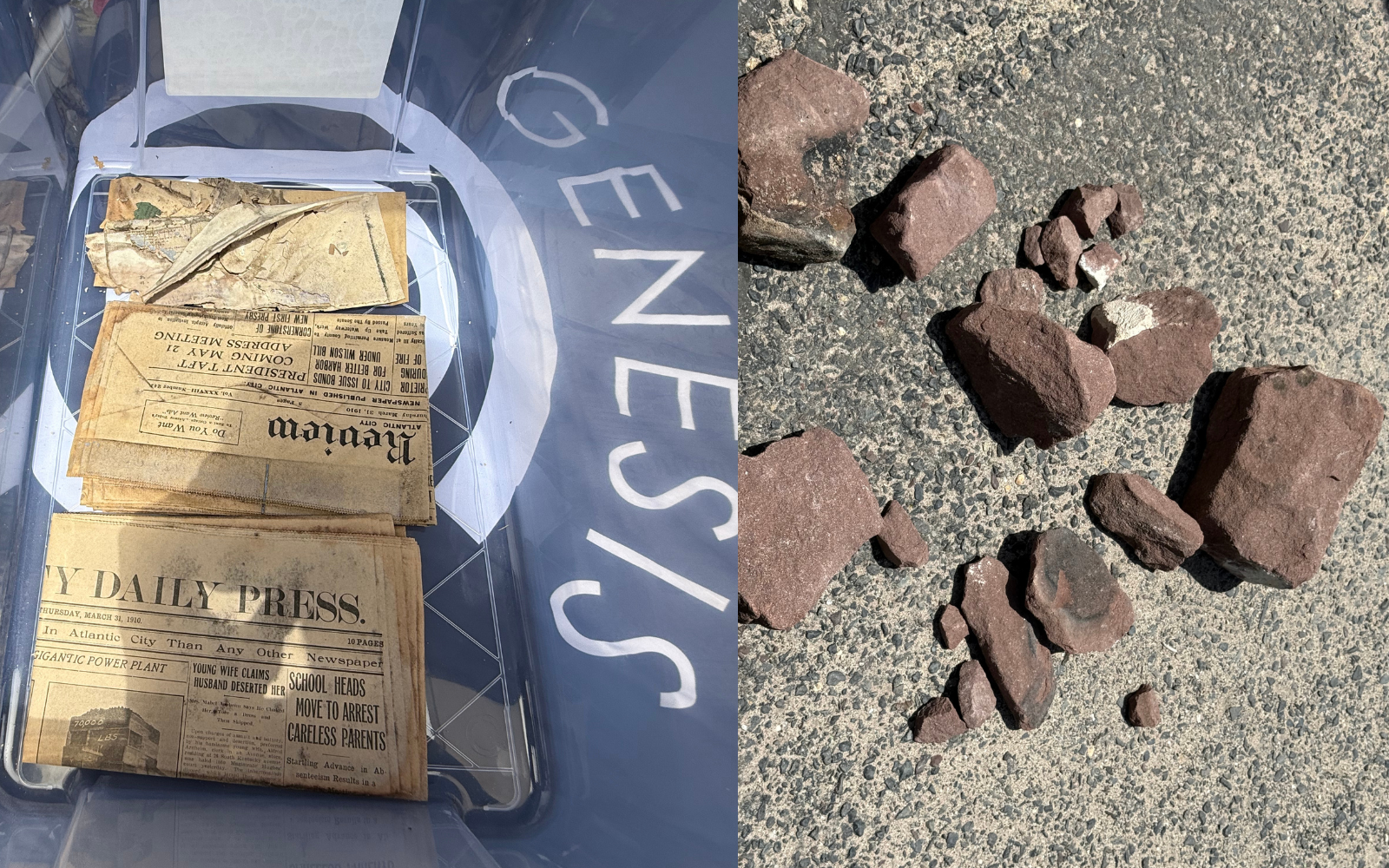
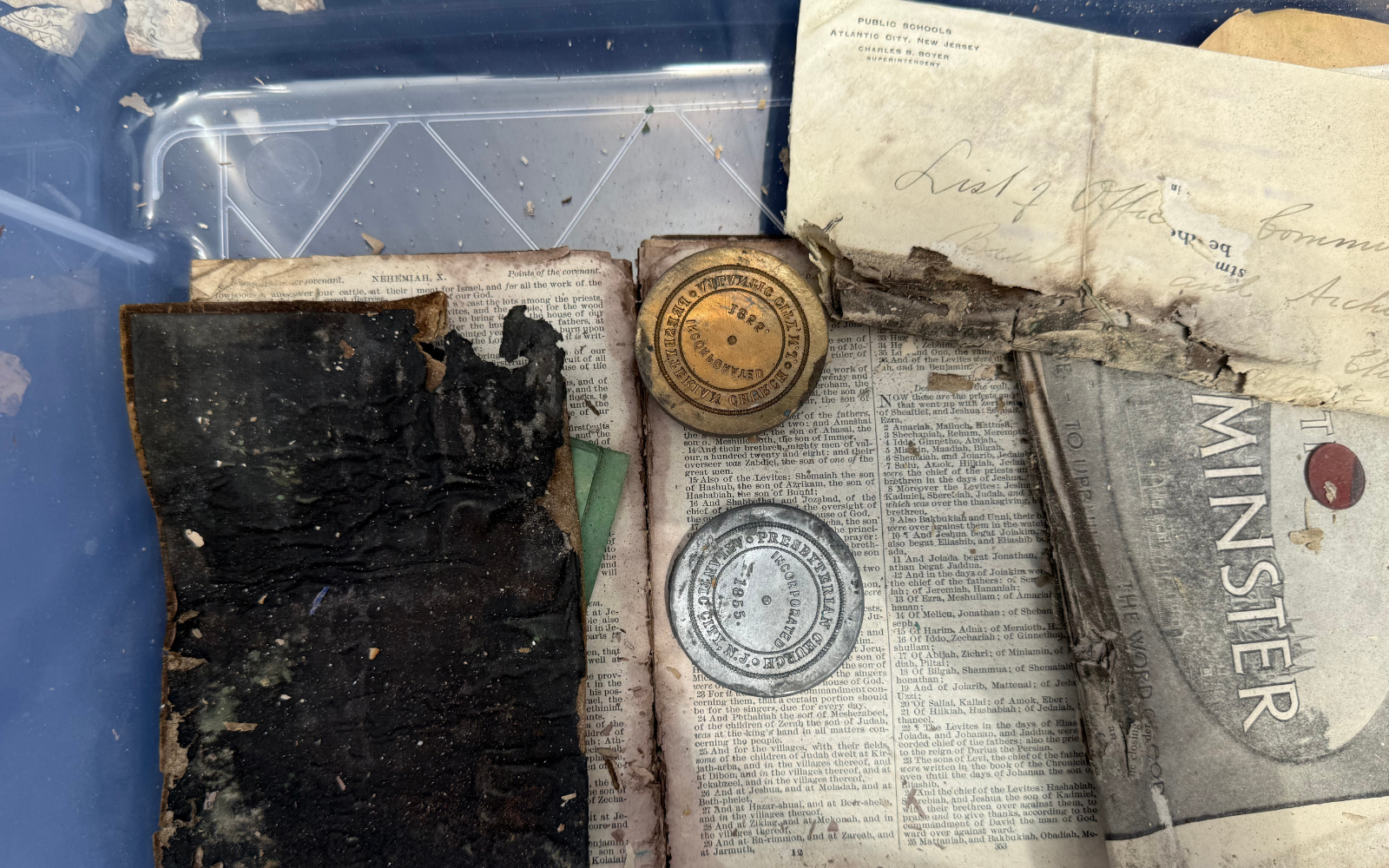
Artifacts recovered from First Presbyterian church. Photo Credit: Mark Tyler
The role of a church in the community, especially the Black community, has always been more than a place to honor and praise God. Marches for Civil Rights were planned there. They have been a safe haven for the homeless and those in need. Throughout the years, the role of the church has evolved.
Lyles, who founded Victory First Presbyterian Deliverance Church in a basement more than 40 years ago, said returning to the property brought back powerful memories.
“It has been wonderful for us to be here again today because this is a historic moment for us,” Lyles said.
The church served as the home of Sister Jean Webster’s Kitchen, when Lyles's congregation worshipped in the building. At its peak, Webster fed up to 600 people a day. She died in 2011, but her mission continues through the Friends of Jean Webster nonprofit, now located at the former St. Monica’s Church in the 100 block of Pennsylvania Avenue.
Community Reflections
Mayor Marty Small, Sr. said the church’s legacy is part of Atlantic City’s identity.
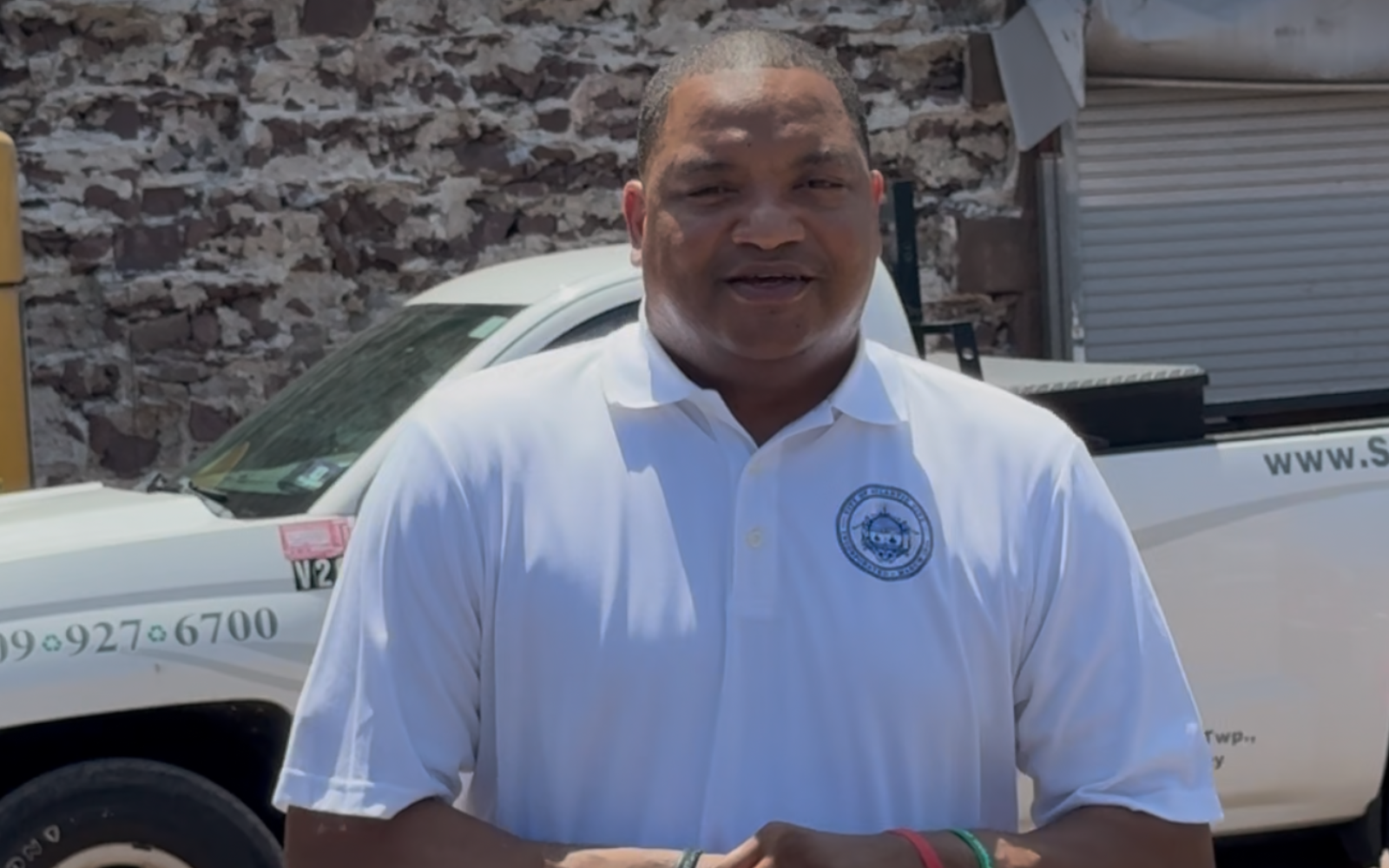
“As you know, Victory Presbyterian is a historic church. I had an opportunity to address the congregation two weeks ago at its current location,” Small said. “This will always be a part of Atlantic City’s history. And now, we’re graduating to national history as the Smithsonian takes the bricks all the way to Washington, D.C. We will never forget the legacy of this church.”
The Rev. John Scotland, retired pastor of Community Presbyterian Church of Brigantine and executive director of the Friends of Jean Webster, reflected on the impact of the site.
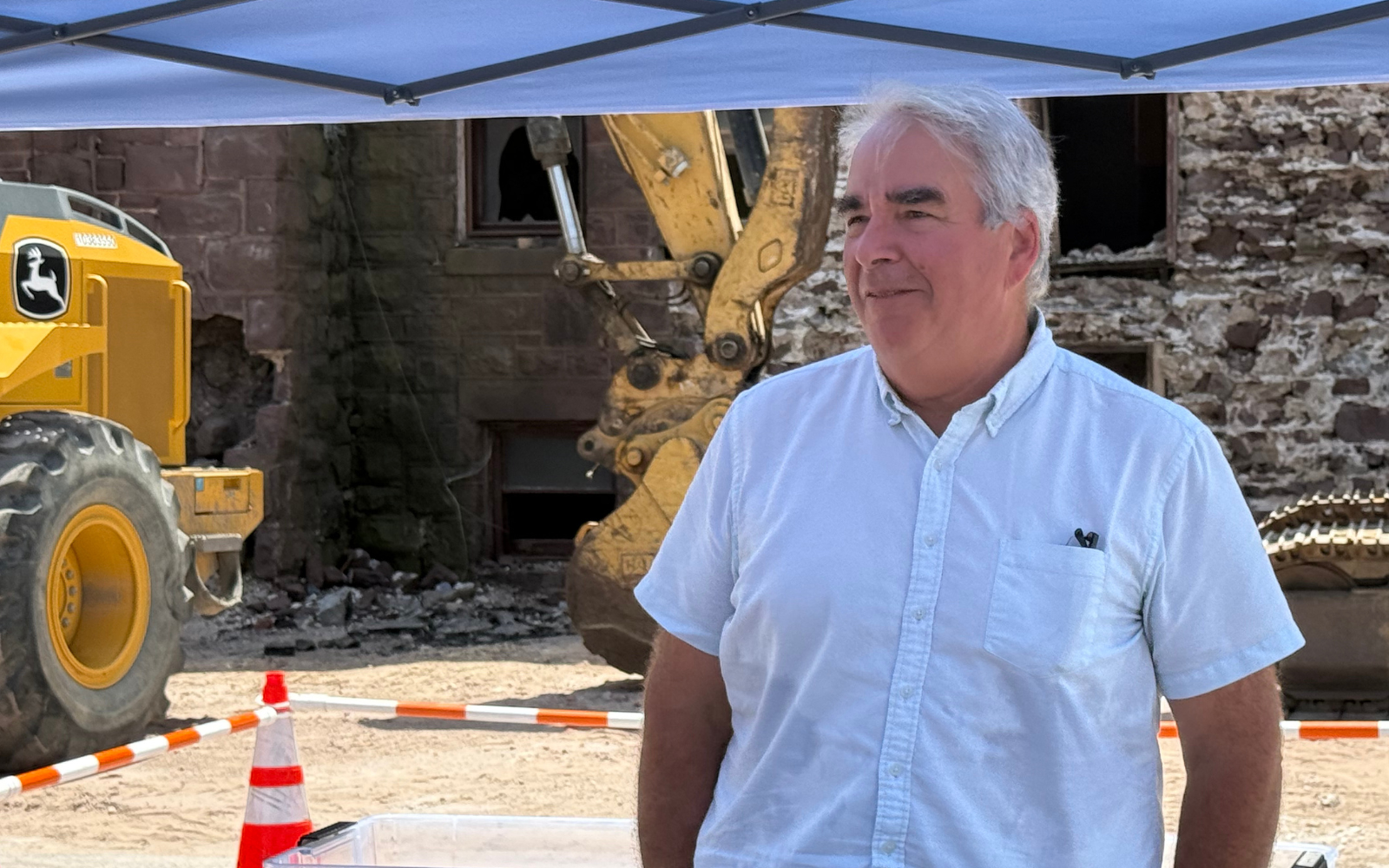
“This was the scene of great partnership in urban ministry, which is a real challenge in many cities across the country,” Scotland said. “Although it saddens me to lose this building, we haven’t lost the congregation. They’re still working and ministering in Atlantic City, and that’s where they’re going to stay — because that’s where the people are.”
Scotland noted that former Mayor Don Guardian, now a state assemblyman, played a key role in transitioning the congregation and ministry to the former St. Monica’s.
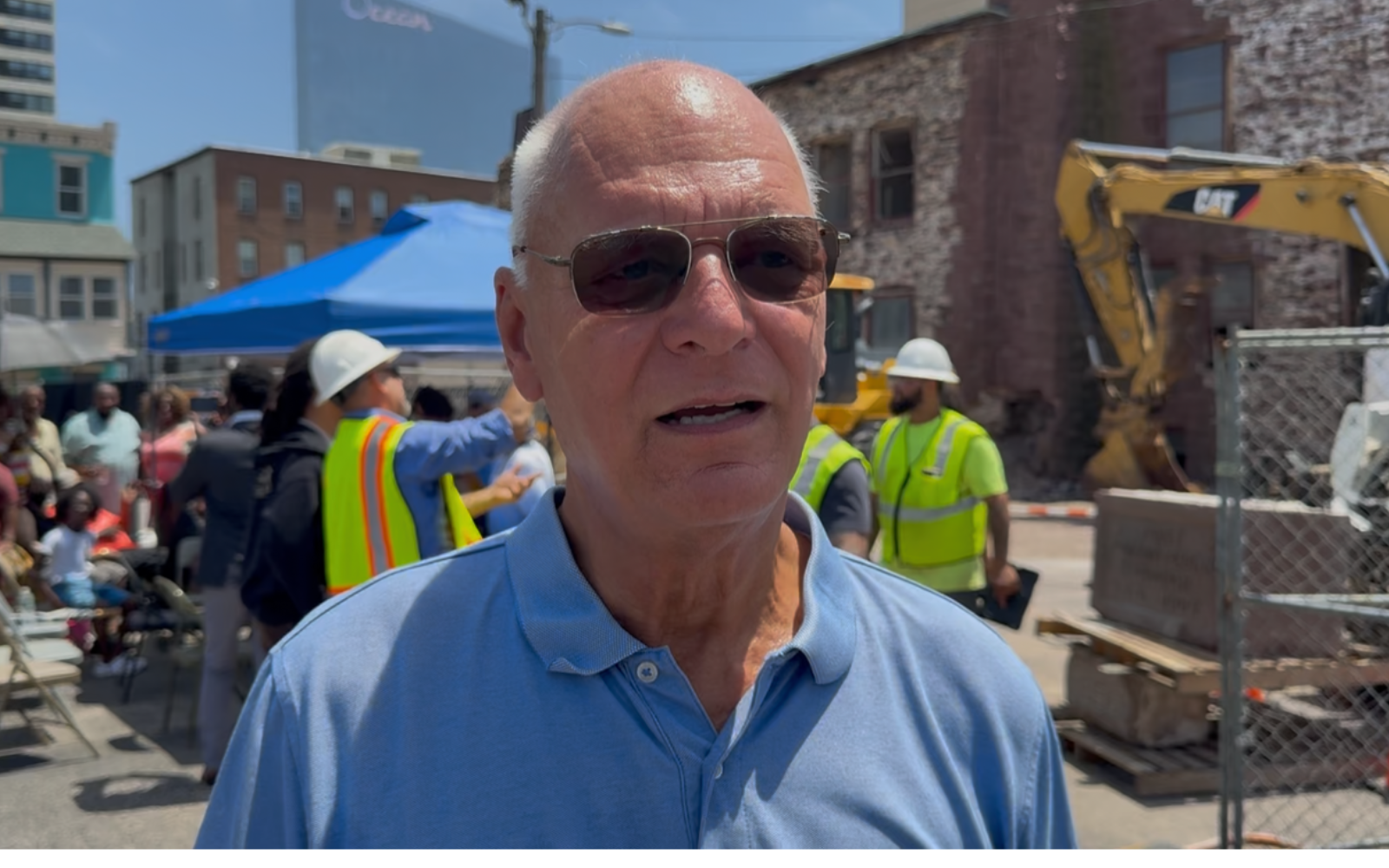
“When we knew that the building was no longer savable, we were very lucky,” Guardian said. “St. Monica’s had just closed and become part of a larger Catholic parish. Since it was only about a block away — and so many people who came to Sister Jean’s were closer to St. Monica’s — it was a smooth transition. It was great to see this church here for all those years. It certainly served a wonderful purpose for the congregation and for people who were able to get a decent meal here. We’re sad to see it go, but we’re glad to see the time capsule preserved.”
Many church members and others connected with the congregation through the years came to see what church leaders from more than 150 years ago deemed important enough to put in the time capsule.
Virginia Queen Faulkner brought her grandson Ya'Sin Bailey for the event. "I've never seen a time capsule opened," Faulkner said. "It was interesting to see."
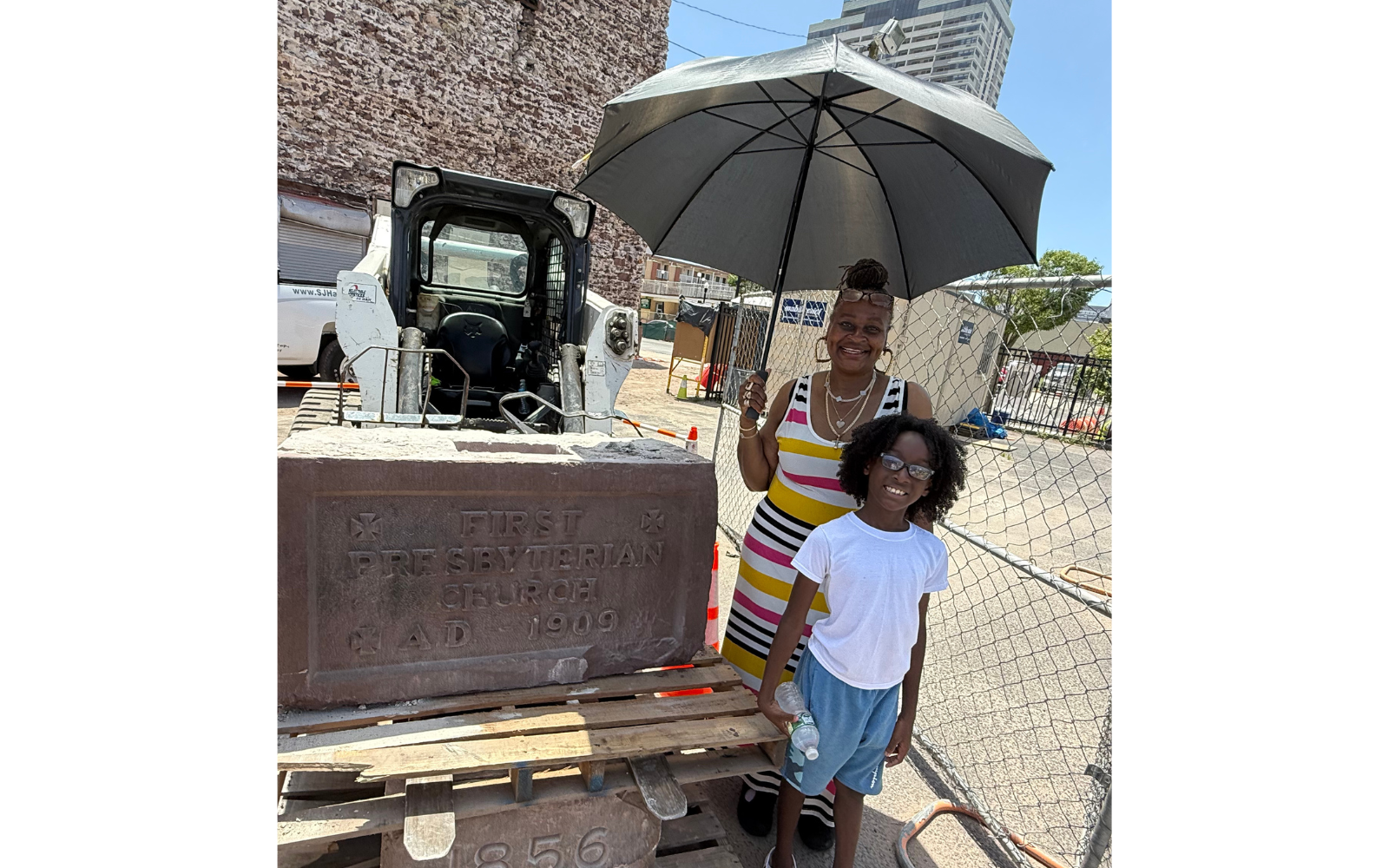
Lonniyell also known as “The community,” who serves as the church's public relations officer, said that as the ministry takes its next step, helping others will continue in different ways.
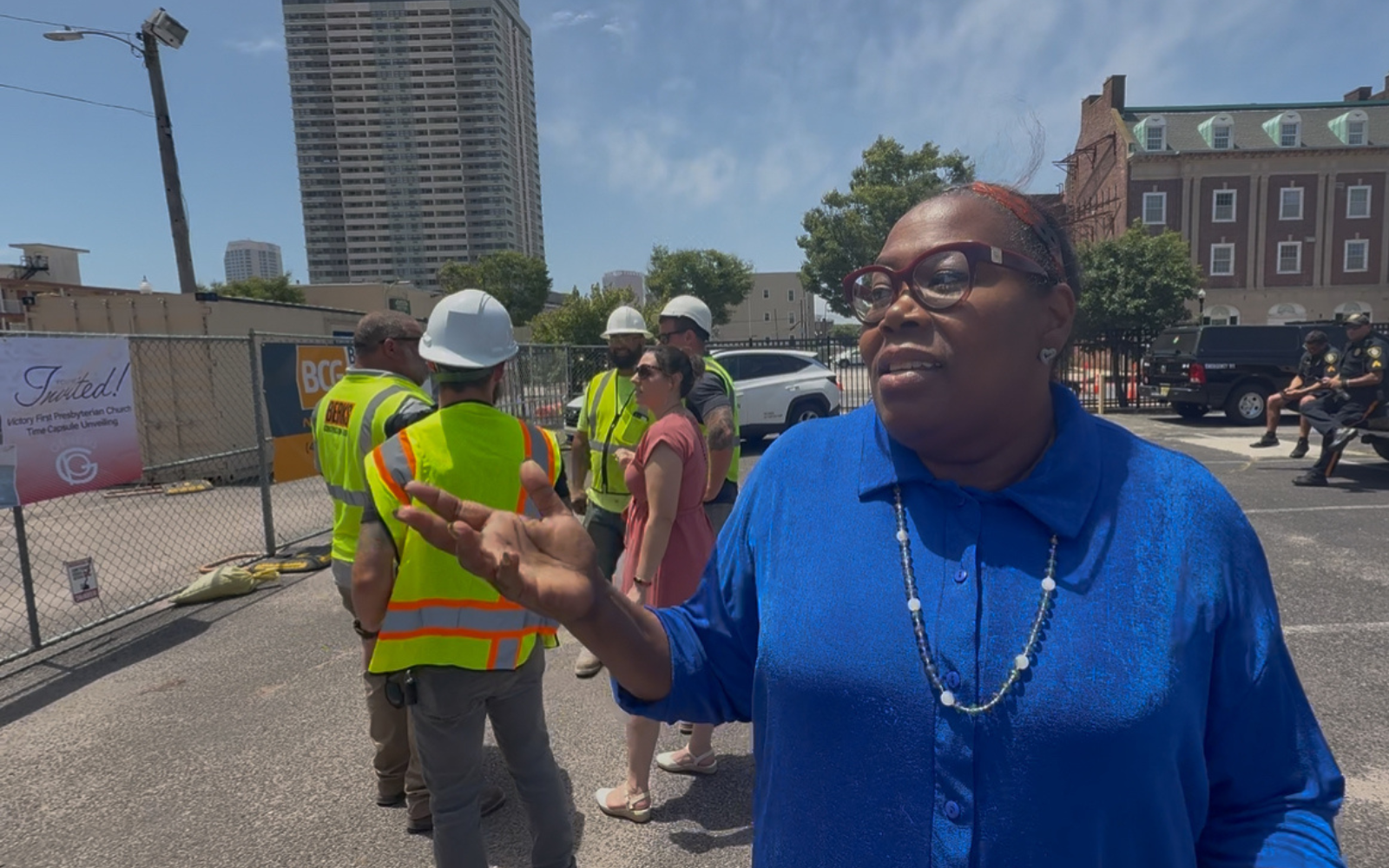
"Great ministry was established here along with important community work," said Lonniyell. "Although this time has passed, I'm excited about what's getting ready to happen."
A New Chapter
The historic building at 1013 Pacific Ave. suffered major damage during Hurricane Sandy in 2012, including flooding, wind damage and a significant roof leak. It was deemed uninhabitable, and renovation to historic standards proved cost-prohibitive. Lyles said the congregation sought assistance from its insurance company and other agencies but was ultimately unable to make the needed repairs.
Still, the congregation continued its ministry until relocating to Allen A.M.E. about seven years ago. Lyles eventually listed the church for sale, and Pure Genesis emerged as the buyer.

Coleman, whose mother used to tell her stories about traveling from Pittsburgh to spend summers in Atlantic City, said she and Wynn were driving through the city looking for property when they noticed the for-sale sign. As they walked the grounds, they met Lyles.
“He asked 'what are you doing on my property?'” Coleman recalled. They shared their dream of turning the site into a cannabis dispensary.
"Six months later, we purchased it. He blessed the property — and it’s been blessing us ever since.”
Coleman said creating a dispensary is important to her, in part, because her mother is a cancer survivor and her recovery would have been much healthier, had she had access to cannabis.
"I too am a breast cancer survivor, so cannabis has always been on the forefront of alternative medicine," Coleman said. "Our purpose is to be a community first partner. What does that mean? We want to bring more than 50-plus jobs to Atlantic City. We want to offer scholarships and internships. We want to offer 20 percent of our positions through the re-entry program and we want to offer north of a living wage. So for us, it's community first in all that we do and we want to shine a light on Atlantic City."
Lyles said that in the 1980s, he drew a church on the wall of a basement — which became reality. Later, he drew another church, which was built in Egg Harbor City.
“Then I drew this church,” he said in a previous interview with Atlantic City Focus. “I had no idea what was going to happen. But I believe the Lord was showing us the steps.”
Preserving a Legacy
Cecil Peacock, another partner in the Pure Genesis venture, said preserving the church’s significance was vital.
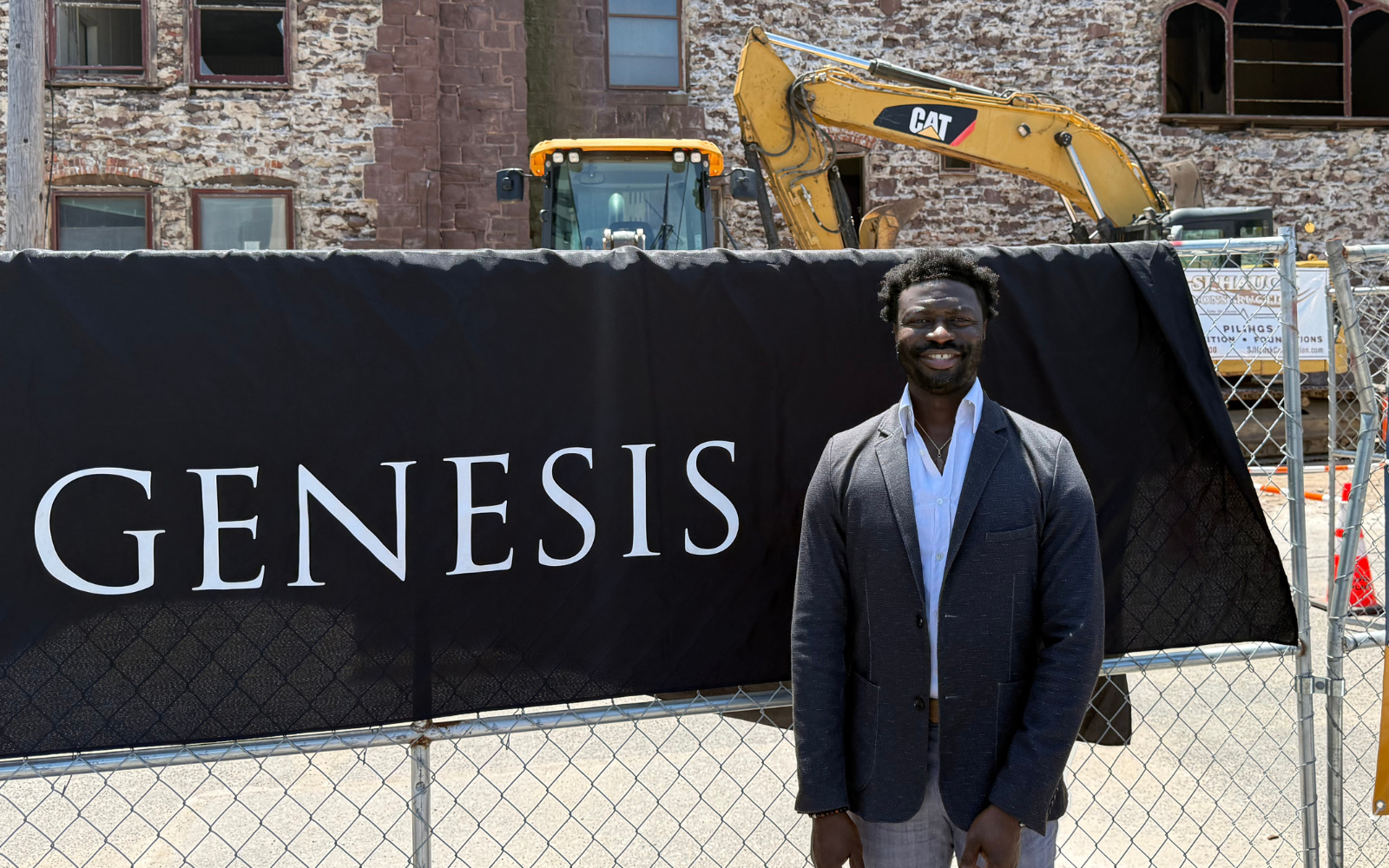
“This church is the only one in the world that could make this work for them,” Peacock said, explaining that stone from both the Atlantic City church and the Smithsonian Castle came from the same quarry. “All the stone was tested and it was a perfect match. The stone will live on in the Smithsonian structure.”
During demolition, the Pure Genesis team discovered the building’s sandstone blocks were of rare historical significance. These stones — found in only a few locations worldwide — are now being preserved for their cultural and architectural value.
“This site holds layers of history — from its foundations to the memories embedded in this time capsule,” Wynn said. “We are humbled to help steward these pieces of the past into the present.”
Thanks for reading the whole story!
At Atlantic City Focus, we're committed to providing a platform where the diverse voices of our community can be heard, respected, and celebrated. As an independent online news platform, we rely on a unique mix of affordable advertising and the support of readers like you to continue delivering quality, community journalism that matters. Please support the businesses and organizations that support us by clicking on their ads. By making a tax deductible donation today, you become a catalyst for change helping to amplify the authentic voices that might otherwise go unheard. And every contribution is greatly appreciated. Join us in making a difference—one uplifting story at a time!





